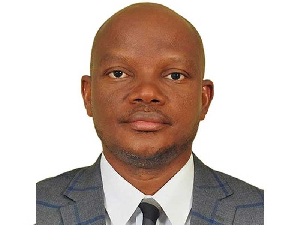The President of the Academic Staff Union of Universities (ASUU), Prof. Chris Piwuna, has accused the federal government of failing to implement any of the agreements reached with the union.
He spoke on Wednesday during an interview on Trust TV.
According to him, ASUU had consistently engaged the government in dialogue, but no part of the negotiated agreements has been enforced.
“We have always made ourselves available to government. Anytime they call us, we come from Calabar, Port Harcourt, Jos and other places to meet in Abuja. Dialogue has always been our first option,” he said.
“But there’s no part of the agreement that has been enforced. We have agreed with the government team on each of the items – funding, conditions of service, academic freedom, university autonomy, and review of some laws among others. What is left is for the government team to take action.”
He explained that while collective bargaining with the government’s negotiation team had produced documents both sides agreed upon, implementation had stalled.
“There is no disagreement between us and the government side on each of these items.
“What remains is for them to return to their principals (the Ministry of education and the federal government) and say ‘look, these are the things we’ve agreed with ASUU. Do you accept it? So we can go back to ASUU and tell them you’ve accepted this, and tell them you don’t want this.’
“So, on the items we have agreed with them, it’s just for them to get back to us on what their principals have agreed to. That is where we are stuck,” he said.
Prof. Piwuna, who is also a medical doctor, linked the mass exodus of professionals from universities and teaching hospitals to poor salaries and conditions of service.
“In the Jos University Teaching Hospital where I work, at least 20 consultants have left in the last two years. As a head of department, hardly three months pass without my signing a reference letter for a doctor relocating abroad,” he revealed.
“It’s the same for lecturers. If everybody is leaving because of salary, why can’t you improve the salary and retain the staff?”
He noted that Nigerian lecturers are being absorbed by other African countries. “In Uganda today, you will not find fewer than 20 Nigerian lecturers, sometimes in one university,” he said.
The ASUU president further lamented the poor state of facilities in Nigerian universities, which he said contributes to their low ranking globally.
“Out of 333 universities in Nigeria, fewer than five are in the top 1,000 in Africa. Our pay is low, facilities are not upgraded, and conditions of service are poor.
“Go to any public university and ask female lecturers if they are comfortable using the restrooms. Many would rather drive home before returning to campus,” he said.
Prof. Piwuna insisted that lecturers are not happy with strikes but are compelled to use them as a last resort.
“Lecturers are happy with strikes. Our students are our children. Our wives and relatives are in the system. We are all affected. But unless government addresses these issues, instability in the system will continue,” he warned.
He urged the media, traditional rulers, religious leaders, parents and civil society to join in advocating for reforms in the education sector.
“This is not about ASUU. ASUU is only fighting for a better system. It is about our future and about our country,” he added.
General News of Wednesday, 27 August 2025
Source: www.dailytrust.com













